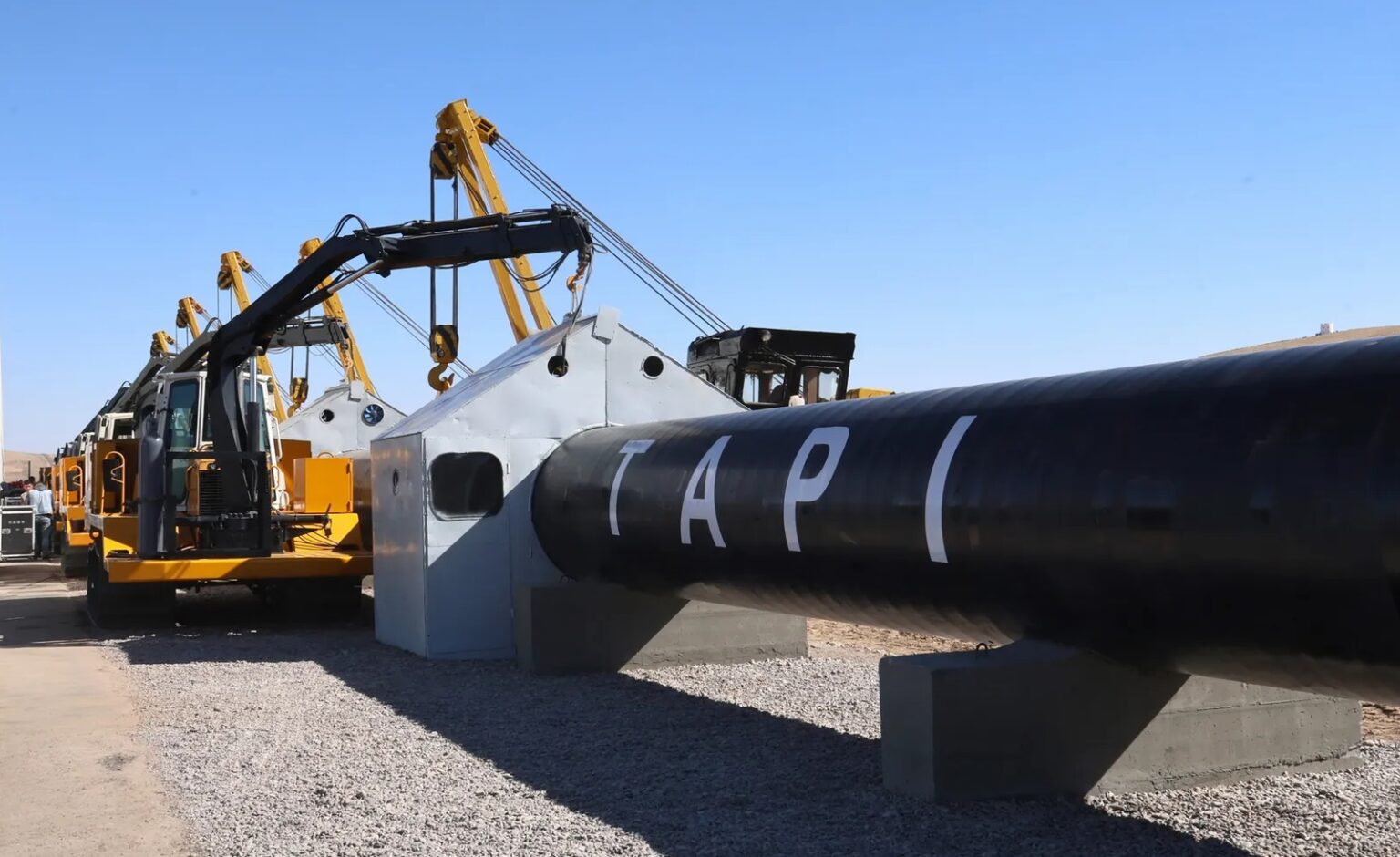Central Asia’s Energy Gambit
TAPI Pipeline Advances Despite Geopolitical Hurdles
The Turkmenistan-Afghanistan-Pakistan-India (TAPI) pipeline, a massive natural gas transmission system spanning four countries across 1,800 kilometers, stands as one of Central Asia’s most ambitious energy infrastructure projects.
Designed to transport natural gas from Turkmenistan’s vast Galkynysh field—the world’s second-largest gas deposit—through Afghanistan and Pakistan to energy-hungry India, the pipeline represents a significant attempt to reshape regional energy dynamics and foster economic cooperation across historically contentious borders. With a planned capacity of 33 billion cubic meters annually, TAPI aims to deliver cleaner energy while creating revenue streams for all participating nations.
The Turkmenistan-Afghanistan-Pakistan-India (TAPI) gas pipeline project continues to evolve following its official inauguration on September 10, 2024, with recent developments indicating both progress and persistent challenges for the estimated $10 billion initiative.
Kazakhstan’s Entry Signals New Regional Dynamics
The landmark pipeline, which aims to transport 33 billion cubic meters of natural gas annually from Turkmenistan’s Galkynysh gas field through Afghanistan to Pakistan and India, was launched at the Turkmenistan-Afghanistan border in a ceremony attended by Turkmen President Serdar Berdimuhamedov and Taliban officials.
Once fully operational, the 1,800-kilometer pipeline is structured to allocate 5% of its gas to Afghanistan, with Pakistan and India each receiving 47.5%. For Afghanistan, the project represents a potential economic lifeline, with projections of $1 billion in annual transit fees and the creation of over 12,000 jobs across provinces including Herat, Helmand, and Kandahar.
TAPI represents the most significant economic opportunity for Afghanistan since the Taliban takeover, It could transform the country from an aid-dependent state to a critical transit hub in regional energy politics.
Moscow’s Shadow: Is Russia Eyeing TAPI Expansion?
Turkmenistan and Russia are in competition to supply natural gas to China
In a significant development, Kazakhstan has formally expressed interest in joining the TAPI project. The state-owned company Kazakhgas is reportedly in active negotiations with Turkmenistan’s Turkmengaz about potential participation in the pipeline venture.
Kazakhstan views the project as a strategic priority, especially as the geopolitical situation in Afghanistan continues to evolve. Their involvement could potentially reshape the project’s dynamics, particularly as they simultaneously strengthen transport links with Turkmenistan along the “Turgundi–Herat–Kandahar–Spin-Buldak” corridor.
Kazakhstan’s potential entry into TAPI might serve as a gateway for Russian participation in the long-debated initiative. Russia has been expanding its presence in Central Asia’s energy sector, notably through the 2023 gas union formed with Kazakhstan and Uzbekistan.
Russian interest in TAPI has been evident since early 2023, when special representative Zamir Kabulov visited Kabul to discuss economic cooperation, including energy projects. That same year, Gazprom announced plans to modify Soviet-era pipeline networks to potentially integrate Russian gas with the TAPI route to South Asia.
Former U.S. Ambassador to Afghanistan Ronald Neumann offered a assessment: “Make no mistake—Russia’s manoeuvring around TAPI isn’t about energy cooperation; it’s about strategic dominance. If Moscow gains influence over this pipeline, they effectively control a key energy artery to South Asia.”
Funding Challenges Threaten Timeline as Sanctions Persist
Despite progress, significant hurdles remain for the project that was first designed in the 1990s but repeatedly delayed due to war and instability in Afghanistan. Western sanctions on the Taliban administration and the absence of official recognition of the government in Kabul continue to hamper funding and investment prospects.
Turkmenistan has already invested over $1.5 billion in joint infrastructure projects with Afghanistan, according to Turkmen Foreign Minister Rashid Meredov. The minister has publicly urged regional partners, including India, Pakistan, and the Asian Development Bank, to contribute financially to the project.
The $1 Billion Promise for Afghanistan
For Turkmenistan, TAPI represents a critical opportunity to diversify its revenue streams and establish itself as a regional energy hub. Afghanistan stands to gain approximately $500 million in transit fees annually, providing a major boost to its struggling economy.
The project also promises to enhance energy security for Pakistan and India, both of which face growing energy demands and supply challenges.
Throughout history, Central Asian prosperity has depended on east-west connectivity. TAPI represents a return to historical patterns that made this region economically vibrant for millennia.
Security Concerns in Volatile Regions
One of the most challenging aspects of the Turkmenistan-Afghanistan-Pakistan-India (TAPI) pipeline project is security, particularly along the 774-kilometre stretch through Afghanistan’s Herat, Farah, Nimroz, Helmand, and Kandahar provinces. The Taliban has pledged to deploy a dedicated security force of approximately 30,000 personnel specifically to protect the pipeline infrastructure, representing one of the largest specialised security operations for a single infrastructure project in the region’s history.
International security consultant Richard Bennett expressed serious doubts: “The Taliban’s promise of 30,000 security personnel is wishful thinking. Local ISIS affiliates and disgruntled Taliban factions see the pipeline as both an ideological target and a potential ransom cash cow. Without international security cooperation—which sanctions make nearly impossible—TAPI remains extraordinarily vulnerable.”
China’s Calculated Absence
Despite China’s Belt and Road Initiative operating throughout the region, Beijing has maintained a notably cautious stance toward TAPI. Energy analysts suggest this may be a strategic decision, as a successful TAPI could potentially reduce South Asian dependence on Chinese energy corridors and investments. This complex dynamic adds another layer to the geopolitical game unfolding around the project.
Environmental Implications and Climate Commitments
The pipeline project faces growing scrutiny from environmental groups who question the wisdom of massive fossil fuel infrastructure investments at a time when the world is pushing toward renewable energy. Both Pakistan and India have made climate commitments that some critics argue conflict with their participation in TAPI, creating a policy contradiction that will need to be addressed as the project advances.
As the project moves forward, its success will likely depend on resolving these complex political, financial, security, and environmental challenges that have plagued it for decades, while capitalising on the new regional partnerships and interests that continue to emerge.

